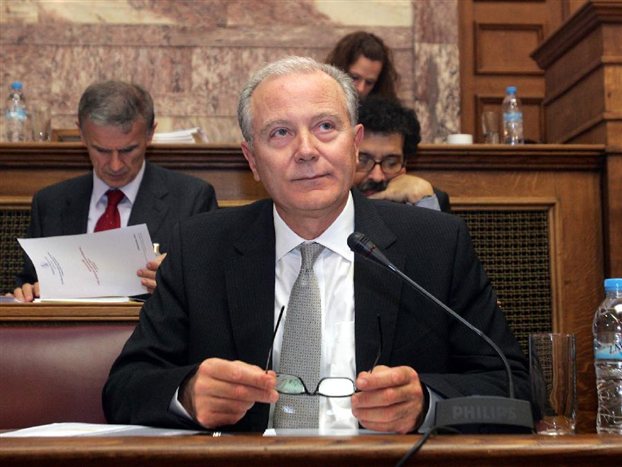By LANDON THOMAS JR., New York Times
Financial prosecutors in Greece are asking the former head of the central bank there to explain his actions in approving a bank sale to a Greek businessman later jailed on fraud charges.
According to reports in the Greek media, the former central banker, Georgios A. Provopoulos, is being treated as a suspect in the case and has been asked to submit a memorandum explaining why he approved the sale of Proton bank against the recommendations of regulators within the central bank.
Mr. Provopoulos has not yet been charged with a crime and there is no evidence that he profited from the transaction. Still, under Greek law, breach of financial duty is considered a felony and if prosecutors determine that Mr. Provopoulos did neglect his duty in this respect, he could face charges.
Neither Mr. Provopoulos nor his lawyer could be reached, but the former bank chief has in the past defended his actions in the matter as crucial to safeguarding the Greek banking system.
Since the Greek crisis began in 2010, several high level government officials have ended up in legal jeopardy. The former finance minister, George Papaconstantinou, faces criminal charges, accused of meddling with a list of suspected Greek tax dodgers given to Greece by the French government.
And Akis Tsochatzopoulos, a previous defense minister, was given a 20-year prison term last year for taking bribes related to military procurement projects.
A case against a senior banking official would come at a very sensitive time for the Greek banking sector, which is wrestling with a mountain of non-performing loans.
Mr. Provopoulos played a dominant role in overseeing the bank’s 40 billion euro recapitalization program. But with the European Central Bank in the midst of a broad banking stress test, concerns have grown that Greek banks may need yet another round of fresh cash.
The investigation follows an earlier 2013 report by a different prosecutor (which was never made public) that alleged Mr. Provopoulos approved the sale of mid sized Proton bank to Lavrentis Lavrentiadis despite warnings from staff at the central bank over Mr. Lavrentiadis’ shaky finances.
Three years after buying the bank in 2009, Mr. Lavrentiadis would be arrested on charges of fraud and embezzlement. Proton failed in 2011 and had to be bailed out.
Because the bank selling Proton at the time, Piraeus Bank, was and is still run by Michael Sallas, a previous employer of Mr. Provopoulos, the deal has been held up as yet another example of the suspicious insider dealings that have long plagued the Greek banking system.
In an earlier interview while still in office, Mr. Provopoulous rejected any claim that he was playing favorites in the transaction.
Mr. Provopoulos drew praise for his oversight of the Greek banks during the depths of the European debt crisis when many billions of euros took flight over fears of a return to the drachma.
Even though he made it clear that he would like to stay on for another six-year term, the new Greek government under Antonis Samaras replaced him last spring with Yannis Stournaras, the former finance minister.



















